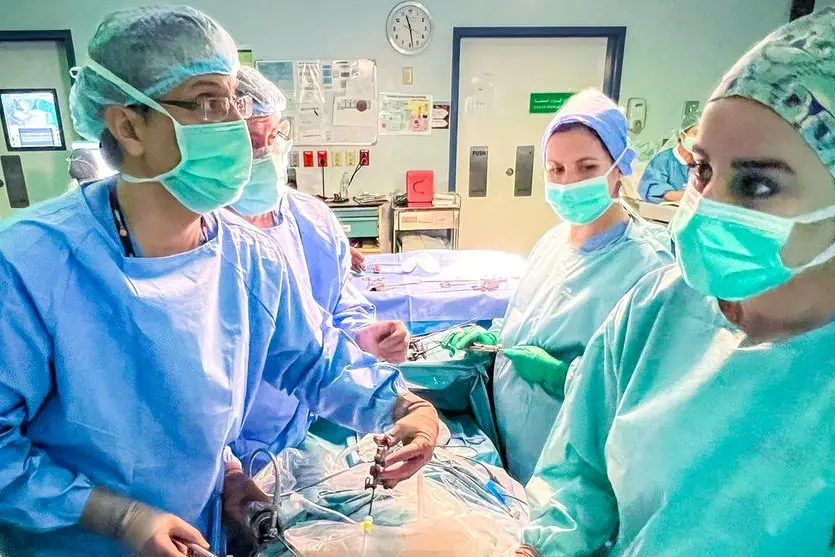PHOTO
Riyadh: King Faisal Specialist Hospital & Research Centre (KFSHRC) is at the forefront of innovative medical solution for fetal care during pregnancy, ranging from screenings to prevent the transmission of genetic diseases to newborns, to therapeutic procedures, and advanced surgical interventions. These measures aim to protect fetal health, improve the chances of normal growth, and reduce the risk of congenital disorders, ensuring the well-being of both mothers and fetuses alike, reflecting KFSHRC’s commitment to delivering the highest levels of specialized healthcare.
The Preventive Fetal Screening Program is a key pillar in maternal and fetal care, targeting families with hereditary diseases. The screening process detects potential genetic disorders to ensure the fetus is free from any genetic defects during the first months of pregnancy, thus safeguarding the health of the fetus. This allows doctors to manage the challenge of the limited time window between the 9th and 19th weeks of pregnancy, during which they can intervene medically to ensure the fetus’s well-being.
Approximately 1,500 families with hereditary conditions benefit from this service annually, as a result of the continuous collaboration between the Centre for Genomic Medicine and the Department of Obstetrics and Gynecology. This partnership enhances healthcare for pregnant women by providing effective preventive solutions that address the growing medical challenges in diagnosing complex genetic disorders. The service currently manages around 30 cases per week, positioning KFSHRC as the leading provider of such services in the Kingdom.
On the other hand, the Fetal Diagnosis and Therapy Program offers treatment for many complex medical conditions through cooperation between various diagnostic, medical, and surgical specialties. These conditions include Twin-to-Twin Transfusion Syndrome, caused by an unbalanced blood distribution between identical twins, and Twin Reversed Arterial Perfusion Syndrome, which compromises the twins' health due to abnormal blood exchange between mother and fetus. The care also extends to congenital diseases of the lungs, diaphragm, brain, and spinal cord, which may lead to serious complications during pregnancy or after birth. Various interventions, such as needles or endoscopy, are used to alleviate the impact of these conditions. Additionally, fetal anemia is treated through intrauterine blood transfusions using precise techniques.
Recently, KFSHRC in Riyadh successfully repaired a spinal cord defect in a 26-week-old fetus using fetal endoscopic surgery, marking the first such procedure in the Middle East. The surgery involved creating three small incisions, each less than 2mm, in the uterus near the fetus’s back, while monitoring the fetus via ultrasound throughout the procedure. The defect was successfully repaired, fully protecting the spinal cord and reducing future complications for the newborn and their family. The newborn was then delivered naturally at 36 weeks in good health.
It is noteworthy that KFSHRC has been ranked first in the Middle East and Africa and 20th globally in the list of the world’s top 250 Academic Medical Centres for the second consecutive year and recognized as the most valuable healthcare brand in the Kingdom and the Middle East, according to the 2024 Brand Finance rankings. Additionally, in the same year, it was ranked among the world's best 250 hospitals and included in the list of the World’s Best Smart Hospitals for 2025 by Newsweek magazine.




















